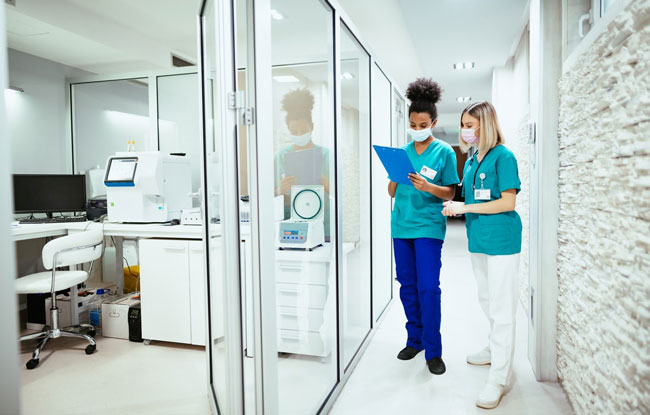Health Informatics (HI) came into the spotlight during COVID-19. The sheer volume and velocity of data collected necessitated tools and technology to analyze and organize information. One primary purpose of health informatics centers on improving healthcare outcomes while improving patient care and lowering healthcare costs.
While this purpose of health informatics is critical at any time, for any practice, the rise and effect of the COVID-19 pandemic shaped the healthcare industry like never before. Healthcare facilities desperately sought ways to gain the information needed to heighten patient care at a reasonable cost while battling a relatively unknown virus. Those who earned an MSHI degree were able, by using Health Informatics processes and tools, to take the information gathered and use it in the life and death fight against COVID-19.
Benefits of Health Informatics During the COVID-19 Pandemic
The health crises worldwide caused by the COVID-19 pandemic have highlighted how vital analyzing quantitative findings in patient information can be. Locally, the University of Alabama at Birmingham joined a nationwide collaboration of clinicians, informaticians, and other biomedical researchers to turn data into effective treatments and predictive analytical tools that could help lessen or end the global pandemic.
Through extensive data and research, health informaticians collected imperative data that helped address the global pandemic. Some of the ways HI helped inform the healthcare industry during the pandemic include, but are not limited to, the following:
- Identifying trends in hospitals.
- Recognizing patterns presented to medical practices.
- Health agencies were able to provide current and accurate information.
- Insurance Companies understood health trends to help premiums remain constant.
- Where the pandemic was spreading.
- How COVID-19 was mutating.
- How the pandemic affected the economy.
- New mental health issues due to pandemic isolation.
- Ability to better self-manage illness.
Undoubtedly, medical professionals could utilize this information to accurately find trends, pursue effective treatment options, and ultimately save lives.
How You and UAB Can Give the World a Healthier Tomorrow
Health Informatics is about merging technology with data for positive outcomes within healthcare in times of crisis, such as during the COVID-19 pandemic, and beyond. It is an important field that has helped inform patient care and treatment options not only with COVID-19 but also with chronic illnesses. Health informaticists can help clinicians find access to health research, understand and plan for the ideal user experience, and translate data into practical, measurable, and actionable goals.
In partnership with the UAB MSHI Graduate Program, you can be part of the change for a better-informed healthcare system worldwide. Just think, you could be at the forefront of determining and sidestepping future health threats while changing the healthcare system for the better. After all, it’s projected that jobs in medical or health services will continue to grow by 20 percent between 2016-2026.
Some key benefits of the UAB MSHI program include:
- No GRE required.
- You can earn your master's degree in 24 months!
- Our online program allows for flexibility.
- We offer three academic tracks so you can tailor your curriculum to your interests.
- You do not need a background in healthcare to get a MSHI degree.
- Our students love UAB: 100% of respondents would recommend the UAB MSHI program.
If you’re interested in finding a career that truly makes a difference, health informatics is a growing field with extensive opportunities.
Apply To The UAB MSHI Program Today!
If you’re interested in learning more or applying to UAB’s Master of Science in Health Informatics, click here. We can’t wait to hear from you!
